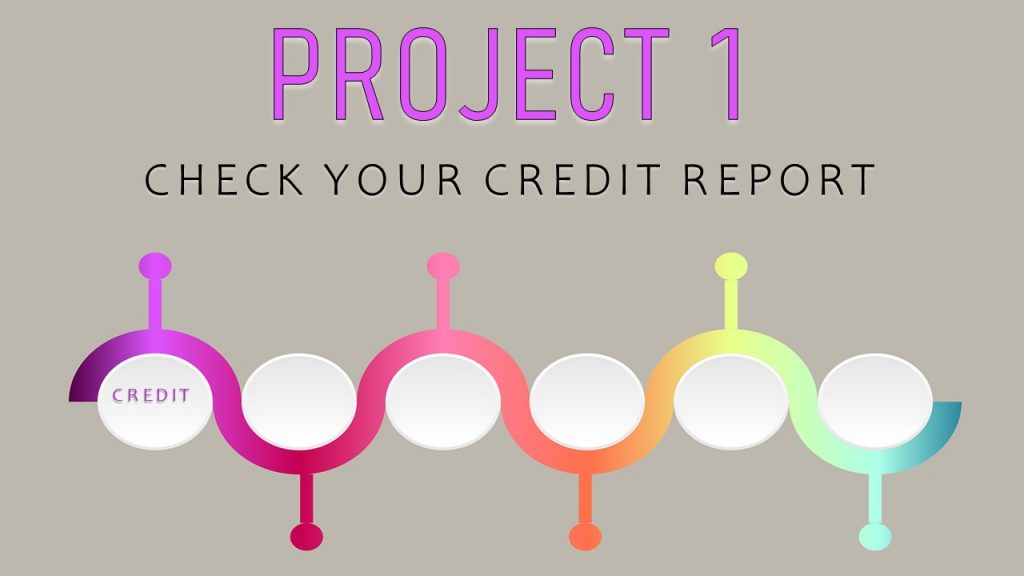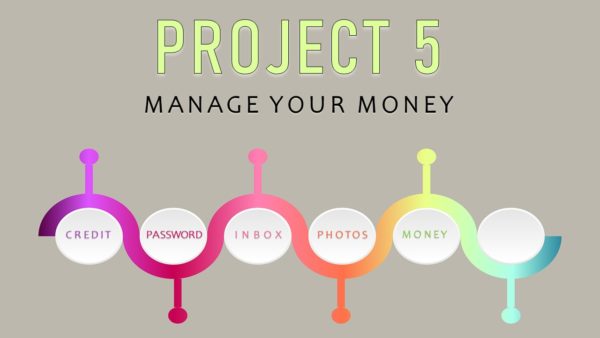Financial health—how to balance a checkbook, create a budget or plan for retirement—isn’t taught in…
Check Your Credit Report

Getting your credit report is an essential and relatively easy project that too many people put off. That’s why I’m making this Project #1 while we practice social isolation. The three largest credit reporting companies are required to provide you with a free copy of your credit report once every 12 months. All you need is a small block of time. What are you waiting for?
What is a credit report?
A credit report is a summary of a consumer’s credit history. It contains information about where you live, how you’ve paid your bills, if you’ve been sued, or if you’ve filed for bankruptcy. It can determine your ability to obtain credit, insurance, employment, or approval when renting a home. It’s an important piece in understanding your overall financial picture.
How to access your credit report.
Go to the website https://www.annualcreditreport.com
AnnualCreditReport.com is the only official, secure site for checking your credit. It will offer you a report from one or all of the three credit agencies: Experian, Transunion or Equifax. You will need to fill out a form and select the agency from whom you wish to request your credit report. This will require you to properly answer several very specific questions about your accounts. These are meant to be difficult questions and you may need to access your files to answer them. Don’t be intimidated by this step, and don’t guess! Take your time to get the answers correct, or you’ll be locked out. These questions ensure that only you can get your credit information.
What should you look for in your credit report?
As you read through your report, you’re looking to ensure the information is accurate. For some people it is easier if you print it out, but it can be many pages long. Confirm that all your personal information is correct including your complete name, address, phone number. You should recognize each of the open and active accounts. These will be credit cards, store accounts, loans and lines of credit.
Suspicious activity or accounts you don’t recognize can be signs of identity theft and need to be reported. Check for combined accounts or records for someone with the same or similar name that show up on your report. Closed accounts can show on your report for years, this is okay, as long as the information is correct. Be sure to check that payments are being credited correctly. Late or missed payment effect your credit score.
What to do if there is an error on your credit report.
Immediately report any mistakes, suspicious activity, duplicate accounts or accounts you don’t recognize to the reporting agency. After a dispute has been submitted, the creditor is responsible for investigating your claim, and must inform you of the results of its inquiry. You can read your rights at the Fair Credit Reporting Act. Filing a dispute has no impact on your score.
What is your credit score?
Your credit score is what lenders use to determine whether to approve you for a credit card or loan, and the interest to charge you. Your credit score varies, depending on what scoring model is used and who is reporting the information. When you apply for credit it’s often the Base FICO score that is used. This scale goes from 300–850. An industry-specific FICO score can range from 250–900 and applies directly to a particular industry such as auto loans. Because different lenders use different scores, you can’t predict which score they will choose. Remember, the actual number is not as important as the range you’re in. If you have a poor score, look at your credit report as a map for how to improve it.
- 300-579 Very Poor
- 580-669 Fair
- 670-739 Good
- 740-799 Very Good
- 800-850 Exceptional
You can choose to pay if you want to receive your credit score from the other reporting agencies. Alternately, many banks and credit cards provide free FICO scores for their customers. Be leery of the many offers to provide you a “free” credit score. They’re making money somewhere, often by selling your information.
Why you should pull at least two reports.
You should monitor all three bureau credit reports to get the best picture of your overall financial health and well-being—but not necessarily all three at once. Each company’s credit report will look different and could have slightly different information or credit scores. What’s important is that all the account information is correct. I usually recommend that people select two the first time, to compare information, but leave one available in case you need to pull it later in the year.
Normally, I pull all three credit reports within a year but not all at the same time. For example, if I pull Experian in the spring, then I note on my schedule to pull TransUnion in early fall and Equifax a few months later. Often, we request my husband’s credit report at the same time, using an alternate company for his credit report. This is helpful because we have many joint accounts.
Now, do it again!
As I mentioned, my husband and I pull credit reports at the same time, but I also assist my mother with this. You may have a senior or young adult children in your life who need to make this practice a routine, too. Show them how simple it is to get done. Then remember to mark your calendar to get your own reports again next year!

